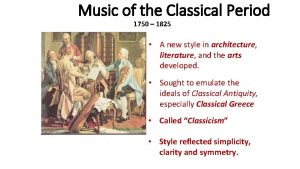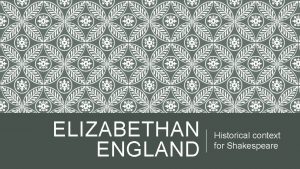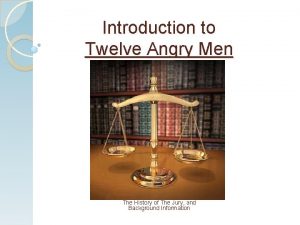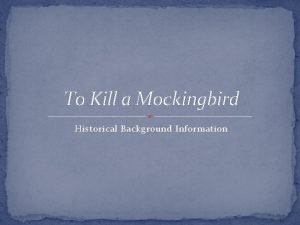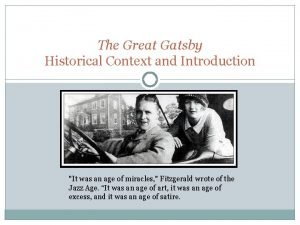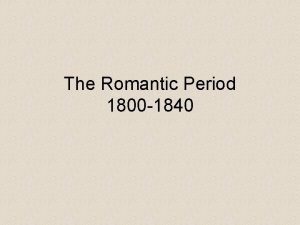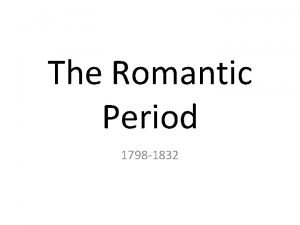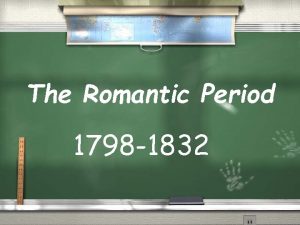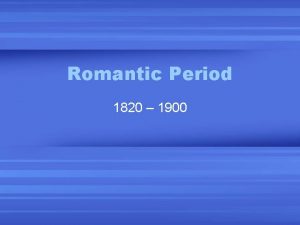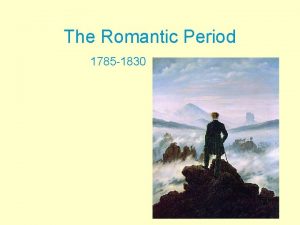Romantic Period 1800 1865 Romantic Period Historical Context







- Slides: 7

Romantic Period (1800 -1865)

Romantic Period (Historical Context) ○ A reaction to the previous decades in which reason and rational thought dominated. ○ Period of invention, Manifest Destiny, abolition movement, and the “birth” of truly American Literature ○ Growth of urban population in Northeast ○ Revolution in transportation and science. Industrial revolution made “old ways” of doing things irrelevant

Romantic Period ○ Writers celebrated: ○ Individualism ○ Imagination ○ Intuition ○ Idealism ○ Love of Nature ○ Types of writing: ○ Short Stories ○ Novels ○ Poetry (Characteristics) ○ Interest in fantasy and supernatural ○ Writing can be interpreted two ways —surface and depth ○ Good triumphs over evil ○ Imagination over reason ○ Intuition over fact

Romantic Period Early Romantics Authors began the tradition of creating imaginative literature that was distinctly American ○ Representative Author Washington Irving (folktales) (Early Romantics)

Romantic Period ○ ○ ○ (Fireside Poets) Fireside Poets The most popular poets of the time were read in the home by the fireside Poetry contained strong family values and patriotism Taught in elementary schools for memorization Poets ○ Henry Wadsworth Longfellow ○ Oliver Wendell Holmes ○ James Russell Lowell ○ John Greenleaf Whittier

Romantic Period ○ (Dark Romantics) Dark Romantics Also known as—Gothic ○ Man’s nature is inherently evil ○ Use of supernatural ○ Strong use of symbolism ○ Dark landscapes, depressed characters Representative Authors ○ Nathaniel Hawthorne (novels, short stories) ○ Edgar Allan Poe (short stories, poetry, literary criticism)

Romantic Period (Transcendentalism) Transcendentalists ○ Hippies of the Romanticism ○ Belief that man’s nature is inherently good; “divine spark” or “inner light” ○ Man and society are perfectible (utopia) ○ Stress individualism, self-reliance, intuition Authors ○ Ralph Waldo Emerson (essays, poetry) ○ Henry David Thoreau (essays)
